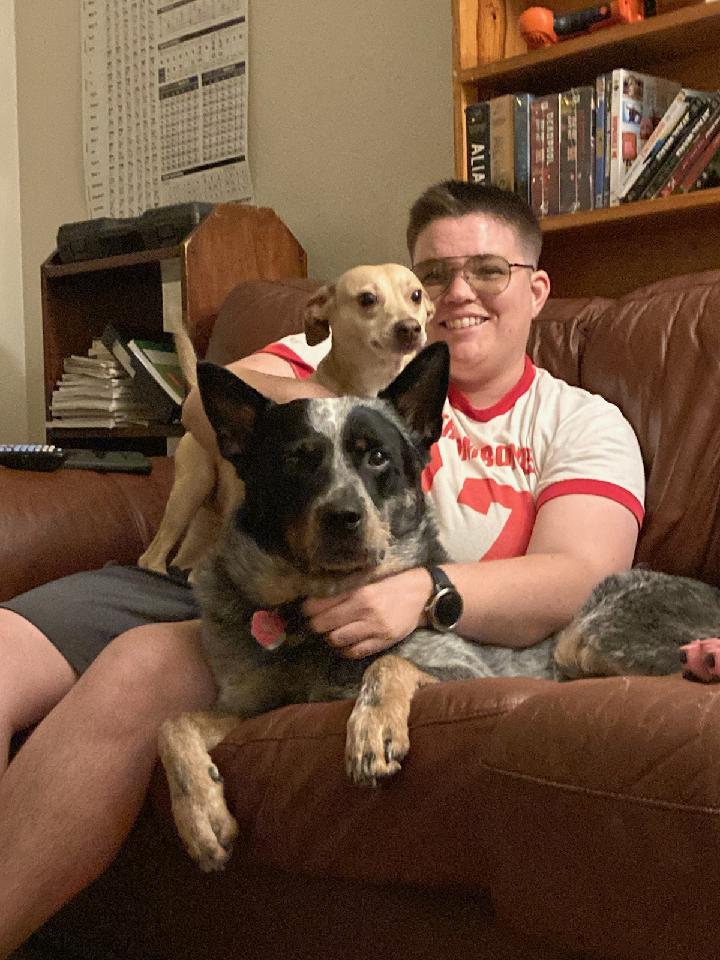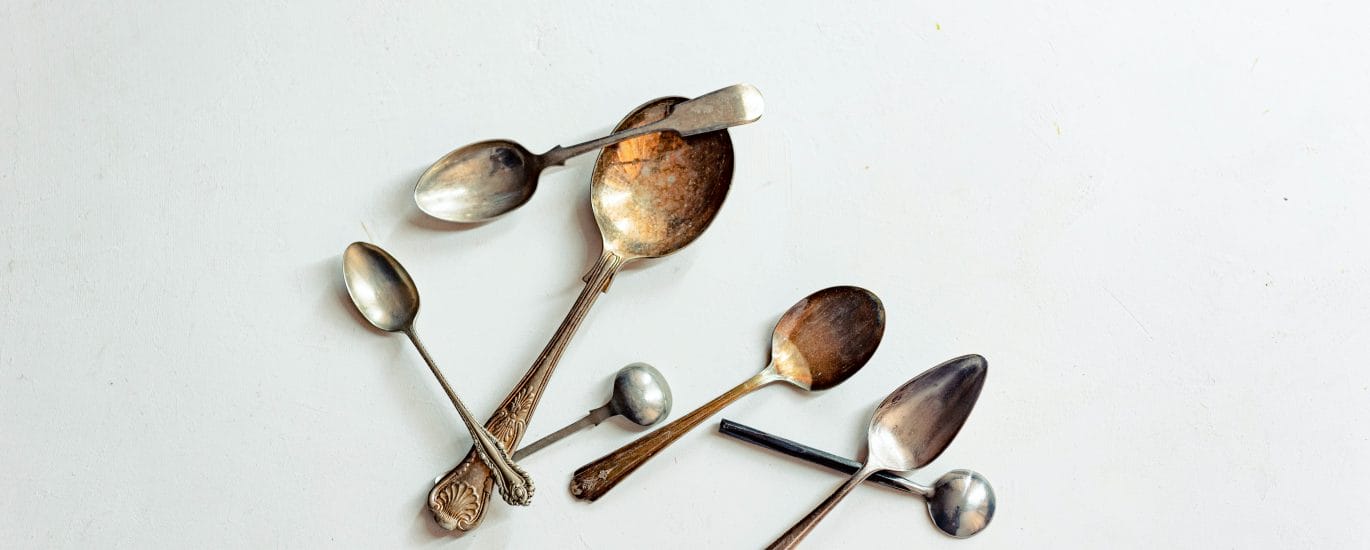By Katy Kammerdiener
Thursday: Today I woke up with 5 spoons. Cooking took 1, reading took 2 and I got a migraine in return, walking and going to class took 3. I’m going to be down a spoon tomorrow, I can feel it.
Friday: That migraine didn’t go away today. I have 3 spoons. Thank goodness no class today. There is no way I can do any school work if I want to shower and go to bed on time and be in just a little less pain. I guess I can cook today and maybe watch some TV.
Nope, no TV. Podcasts instead.
Saturday: Today I woke up with 7 whole spoons! A shower took 1, school work took… 5. I couldn’t bring myself to cook today. My last spoon was spent on trying to hang out with friends… I deserve some semblance of a social life and support system, right?
Welcome to spoon theory. For those that do not know, spoon theory attempts to quantify chronic illness, which in many cases is invisible. I had a brain injury during my first semester of seminary, and all of a sudden I was thrust into an endless cycle of spoon management. For those of us with chronic illness, we have a limited budget of spoons each day, and that fluctuates day to day. Think of spoons as energy levels. Various activities require spoons. A shower may take a spoon to do, cooking and meal planning another 2, driving around and parenting kids every last utensil in your silverware drawer. Regular activities of daily living can take so many spoons it is overwhelming. People with chronic pain conditions, physical disabilities, mental health challenges, and aging bodies deal with spoon theory all the time. More recently, Covid long-haulers were thrust into spoon theory after being perfectly healthy before the illness.
As members of a Baptist collective fiercely fighting for justice, how do we care for, commune with, and celebrate those who live at the mercy of a wildly fluctuating utensil drawer? Education on the theory is a good first step, as long as we don’t stop there.
So what are individual issues that those of us running on spoons face?
The reality that our own expectations will often not happen on time, or at all. What does that mean? All my spoons may be gone by 11am, and there is no negotiation (trust me, I’ve tried). It means missing family functions or church services or your kid’s soccer games. It meant my dream of finishing seminary in 3 years turned into 4 years and counting of missed deadlines, frustrated professors, migraines, and a mounting student loan debt. It means doubting yourself and your accomplishments.
Internalized and Externalized Shame: If you cancel on a friend more often than not or can’t follow through on an obligation, the isolation creeps in. We get stares when we use motorized grocery carts despite chronic fatigue. We don’t “look disabled,” why can’t we get this done?
Financial Stress: Doctors aren’t cheap, medication isn’t cheap, and sometimes we face hard decisions about food vs medicine. Maybe we went to several doctors, hoping something could help, instead walking away with medical debt and no answers.
What are some of the systems of society that affect those of us running on spoon theory?
Gaslighting. Those of us with chronic illness are often gaslighted by the medical industry. We’ve had doctors tell us our pain isn’t real, leaving us to suffer in silence. We’re gaslighted by the education industry that says we aren’t living up to our potential. We spend our lives thinking we are less than, when in reality we just don’t have the spoons others have. And don’t get me started on how much more this affects BIPOC folks.
Vocational Hoop Jumping: Many companies require doctors notes for sick days. They schedule too few staff and make you feel guilty when you have to call in sick. The reality is, the doctor is often out of reach or unnecessary. My medication resistant migraines aren’t something I go to the doctor for, I just have to sit and ride it out. A bad arthritis day doesn’t mean I head to the ER.
A system that values productivity over humanity: Those of us budgeting this silverware may be some of the hardest working people you have ever met, but why should our value be based on how hard we work? Why must we push ourselves to greater sickness just to survive?
What are the systems in the church that affect those of us operating out of a frequently stuck kitchen drawer?
Inaccessible Spaces: For those of us with physical disabilities, aging church buildings can be a nightmare. A lack of an elevator really is a big deal and not just for those with wheelchairs. If a person with arthritis prioritizes coming to church but then has to walk up the stairs, they may not have the spoons to drive home. For sensory issues, an expectation of hugging people and loud music might be overwhelming. For depression, it means having to put on a happy face to meet an overly positive expectation.
Community: God bless church people—they often mean well but want people to be okay. Sometimes we need to be able to say that we aren’t getting better, and we aren’t okay, and that is where we are. God and the church should meet us where we are.
Rigid Expectations: It may take 1 spoon for someone to talk on the phone all day with people, but all of their spoons to organize and execute a project. That could be the opposite of their colleagues. Why must we set rigid roles?
So, what as a collective can we do about it?
Believe people. A person can listen all they want (and that is important), but the way we can counteract gaslighting is to believe and understand those of us with limited spoons. Chaplains and pastors can model this. Lay leaders and deacons and congregants can model this. We must go beyond listening and believe our spoon budgeters.
Avoid toxic positivity: I may never get better and will often not be okay, but that is okay. Prayers to God are great, but sometimes it is resilience we should pray for, not just a miracle cure.
Get political: Separation of church and state may be a core tenet of us Baptists, but that does not mean we as members of the church shouldn’t advocate for things that help all people. Don’t let a history of oppressive theocracies stop us from doing what we know to be right. Support workers rights.
Treat your staff well: Pastors face huge burnout during normal times, and especially now following the pandemic. I have watched and am experiencing ministry in a pandemic, and trust me, it’s rough for us too.
So that’s it, that’s spoons. Let us invite everyone to the table and not take the eating utensils we use for granted.
Thursday, July 1st: Woke up with 9 spoons, but 2 disappeared after breakfast. Wrote an article on spoon theory. Cost 3 spoons. Going to spend the rest of my spoons engaging my friends and support system. I’m worth it.

Katy Kammerdiener is a seminarian at Brite Divinity School, getting an MDiv with a concentration in Sexual and Gender Justice. She enjoys games with friends, watching hockey, and queer culture.




Thank you Katy! Well said! Blessings on your journey of ministry!
As a minister with a disability (cerebral palsy), I find your spoon example helpful in explaining life to “outsiders.”
I knew some delightful fellow students at SEBTS in Wake Forest, NC, in the mid-1980’s who shared your last name. Perhaps you are related?
Thank you for this excellent, thought provoking article, Katy. I first heard about spoon theory a year or so ago but this is the first time I’ve thought about it in terms of our church systems and expectations. I operate on a somewhat stuck kitchen drawer myself, thought not nearly to the same extent as many others. Thank you for helping me be more aware of others dealing with this situation and how I might work to support and provide justice for them.
– Barbara Falk, Edmonton, Alberta, Canada
Thanks KATY, I am pondering your Spoons Theory & will put it to good use, we should think about introducing this to churches, most fail miserably in making access available to all areas for our handicapped friends. Pray you are doing life in this season of COVID with self care. I love our FB SHARES.